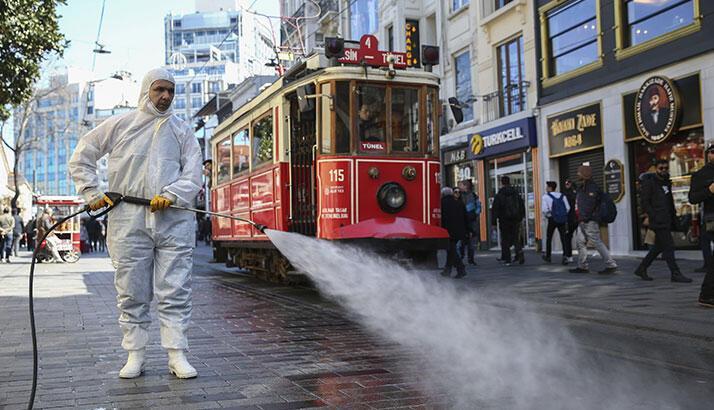
The number of coronavirus cases in Istanbul, the country’s largest city by population, accounts for 40 percent of all infections in Turkey, the health minister has said.
Fahrettin Koca added that the number of cases in the megacity is five times the cases in the capital Ankara, which had at one point overtaken all other provinces, including Istanbul, to become the epicenter of the outbreak in the country.
“We have increased contact screening and the number of tests in the city,” Koca tweeted following a meeting on Oct. 22 with the city’s governor, police chief, deputy ministers, provincial health director, field coordinators and chief physicians.
They decided on the measures to be taken against the ongoing rise in infection cases, the minister added.
“In the fight against the pandemic, we currently do not have a stronger weapon than the [protective] measures you will follow. The importance of the mask has increased. And we will face the toughest test against crowds,” he wrote on Twitter.
Meanwhile, Koca said on Oct. 23 that coronavirus cases are once again on the rise across Turkey.
Speaking at a news conference during his visit to Turkey's western Bursa province, he stressed that the number of COVID-19 infections has been climbing again across the country.
Koca said he is planning for a visit to Turkey's metropolitan city of Istanbul where 40 percent of overall infections in the country has been recorded.
Bursa province has also been through a critical condition, the minister added.
“Compared to mid-September, the number of daily cases [in Bursa] rose approximately threefold," he said.
The number of people who took the test at Istanbul’s Çapa Hospital and tested positive for COVID-19 has tripled over the past one month, Professor Tufan Tükek, the dean of Istanbul Medical School, told daily Milliyet.
The positive rate — the number of daily infections to the number of tests carried out — increased to 35 percent presently, from as low as 5 percent in June and July, Tükek said, adding that the rate picked up to 12 percent and 15 percent in August and September, respectively.
“The outlook is not very bright,” he stressed.
Some 80 percent of students are attending face-to-face classes in schools, the country’s education minister said.
Kindergarten pupils, as well as students from first, second, third, fourth, eighth, and 12th grades, already began in-class education in the country.
Fifth and ninth graders will return to school on Nov. 2.
There has not been an increase in infections among students who attend face-to-face classes or among the family member of those students, Education Minister Ziya Selçuk said.
“On the contrary, the number of cases has declined. Schools are a more controlled environment than other public places, such as streets and marketplaces or resorts,” Selçuk added.